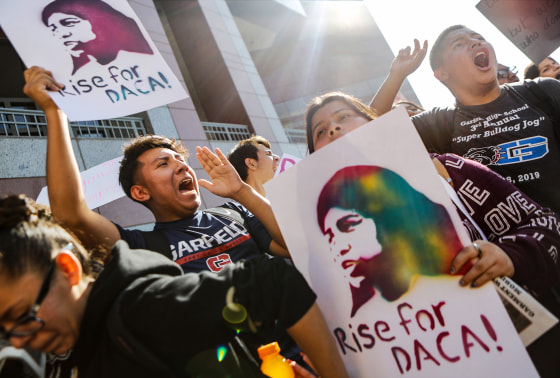
A Biden administration rule that let DACA individuals to enroll in health insurance through the Affordable Care Act was halted by a federal judge in North Dakota.
Judge Dan Trayn of the U.S. District Court ruled on Monday in favor of a coalition of 19 Republican state attorneys general who sued the rule in August to stop it from going into effect, arguing that it violates a provision that forbids providing public benefits to those who do not have legal immigration status. During his first term in office, Trump appointed Traynor.
On November 1, open enrollment for the Affordable Care Act, often known as Obamacare, began for individuals who were already receiving benefits under the Deferred Action for Childhood Arrivals program (DACA). It was anticipated that coverage for individuals who signed up would begin as early as January 1.
Their only choice was to obtain coverage through their workplaces or state programs that provide it, as they had been prohibited from obtaining government-funded health insurance. Others depended on free or inexpensive care from community health clinics or went without insurance.
It was a significant victory for the rule of law, according to Kansas Attorney General Kris Kobach, who spearheaded the court challenge against the Biden administration.
In a post on X, he stated that Congress never intended for illegal aliens to be eligible for Obamacare benefits.
In June 2012, then-President Barack Obama signed the DACA executive action, which granted work permits and prevented deportation for undocumented immigrants who entered the country as minors.
The Biden administration rule is still in force in other states, according to Drishti Pillai, director of immigrant health policy at KFF, a nonprofit organization that studies health policy matters. Monday’s decision only applies to the 19 states who brought the action.
These states include North Dakota, Ohio, South Carolina, South Dakota, Tennessee, Texas, Virginia, Alabama, Arkansas, Florida, Idaho, Indiana, Iowa, Kansas, Kentucky, Missouri, Montana, Nebraska, New Hampshire, and North Dakota.
However, Pillai warned that the removal of extended coverage would leave thousands of DACA applicants in those areas without access to an inexpensive alternative. It seems unlikely that the decision will be appealed, she continued.
The Trump administration is unlikely to fight any decision against DACA or the coverage increase, according to Pillai, given that President-elect Trump attempted to terminate DACA during his first term and his broader immigration policies.
Trump stated that he would collaborate with Democrats to reach an agreement that permits DACA recipients to remain in the country during an interview with NBC NewsKristen Welker that aired on Sunday.
“I want to be able to work something out,” he added, adding that it should have been possible to do so during the previous three or four years but it was never resolved.
The federal government was examining the judgment and its implications, according to a post on Healthcare.gov that NBC News was sent to by a Department of Health and Human Services official.
Note: Every piece of content is rigorously reviewed by our team of experienced writers and editors to ensure its accuracy. Our writers use credible sources and adhere to strict fact-checking protocols to verify all claims and data before publication. If an error is identified, we promptly correct it and strive for transparency in all updates, feel free to reach out to us via email. We appreciate your trust and support!
